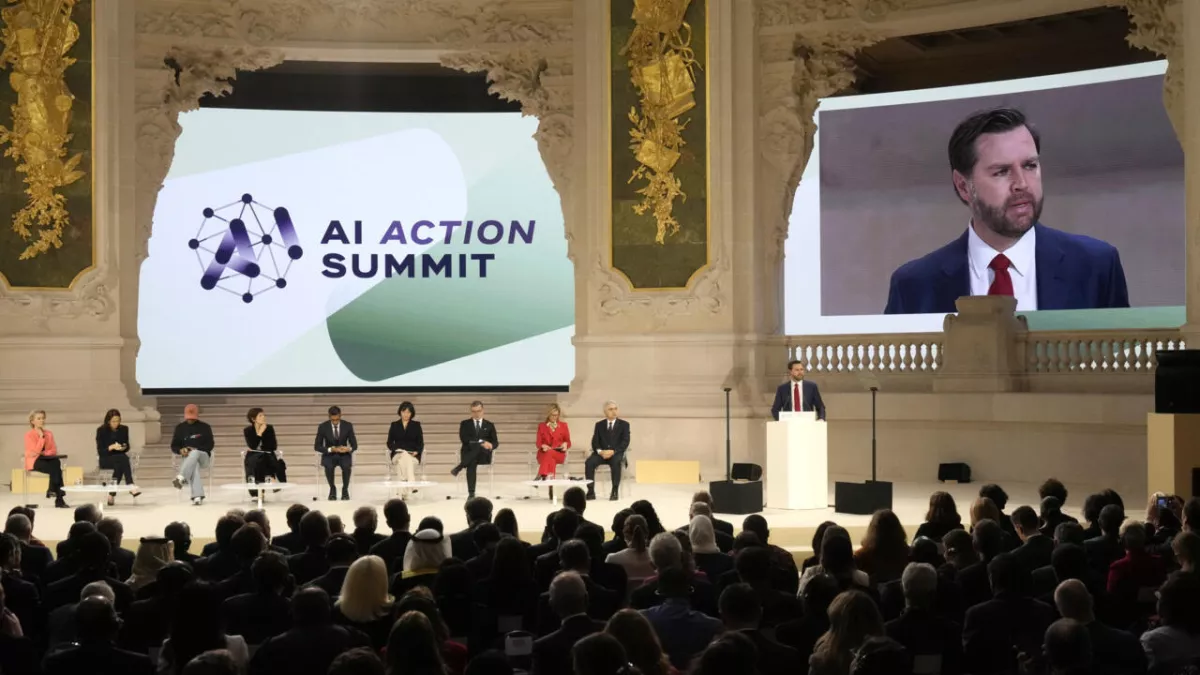Ex-Google CEO: US microchip export limits essential to prevent AI misuse
Former Google CEO Eric Schmidt has voiced support for US export controls on powerful microchips that drive the most advanced AI systems, warning of potential dangers if the technology falls into the wrong hands.
Speaking in an interview, Schmidt acknowledged the restrictions imposed by the Biden administration, which banned the export of high-end microchips to all but 18 countries, Caliber.Az reports, citing British media.
The move, aimed at slowing adversaries' AI advancements, could still be reversed by Donald Trump if he returns to office.
Schmidt justified the controls by highlighting the risks AI poses if acquired by hostile nations. “Think about North Korea, Iran, or even Russia — countries that could have dangerous intentions,” he said. “This technology is fast enough that, in the wrong hands, it could be misused to cause real harm.”
He specifically warned about AI's potential to create powerful weapons, including the possibility of a biological attack orchestrated by bad actors. “I’m always worried about the ‘Osama Bin Laden’ scenario—where a truly evil person gains control over an aspect of modern life and uses it to harm innocent people.”
Schmidt stressed the need for a balanced approach to AI regulation, advocating for government oversight while warning against excessive restrictions.
“The truth is that AI’s future will largely be shaped by private companies,” he said. “Governments need to understand what we’re doing and keep a close watch, but over-regulation could stifle innovation.”
His remarks followed the conclusion of the AI Action Summit in Paris, where the US and UK declined to sign a global AI regulation agreement. US Vice President JD Vance argued that such measures would “kill a transformative industry just as it’s taking off.”

Schmidt warned that Europe’s strict regulatory stance could leave it lagging behind. “AI is the most important revolution since electricity, in my opinion. But with excessive regulation, Europe risks missing out on leading that revolution.”
As a key figure in Google’s rise — including its acquisition of Android, now the world’s most widely used mobile operating system — Schmidt acknowledged that tech leaders didn’t fully grasp AI’s long-term implications 15 years ago.
“My experience with tech executives is that they now understand the impact they’re having,” he said. “But their value judgments might differ from those of governments.”
Beyond AI, Schmidt has become an advocate for limiting smartphone use among children. He admitted that tech industry leaders, himself included, underestimated the broader social impact of their innovations.
“I didn’t fully understand, and I’ll take responsibility for the fact that the world doesn’t work the way we tech people expected it to,” he said. “The situation with children is particularly concerning.”
Schmidt supports keeping smartphones out of schools, arguing they need to be moderated for young users. “Smartphones can be safe for kids,” he said, “but we all agree that children should be protected from the dangers of the online world.”
He has also backed proposals to ban social media for children under 16, questioning why society would run an “uncontrolled experiment” on its most important population—the next generation.
The debate over smartphones and social media use among children has gained traction worldwide. Australia, for instance, passed a law in 2024 banning social media for under-16s, with Prime Minister Anthony Albanese citing the need to protect children from its harms.
While a recent study in The Lancet found that banning phones in schools did not necessarily improve students’ behavior or grades, it did link excessive smartphone and social media use to worse academic performance and overall well-being.
Schmidt’s remarks reflect a growing push for responsible AI development and digital safety, as the world grapples with both the promises and risks of rapidly advancing technology.
By Tamilla Hasanova








